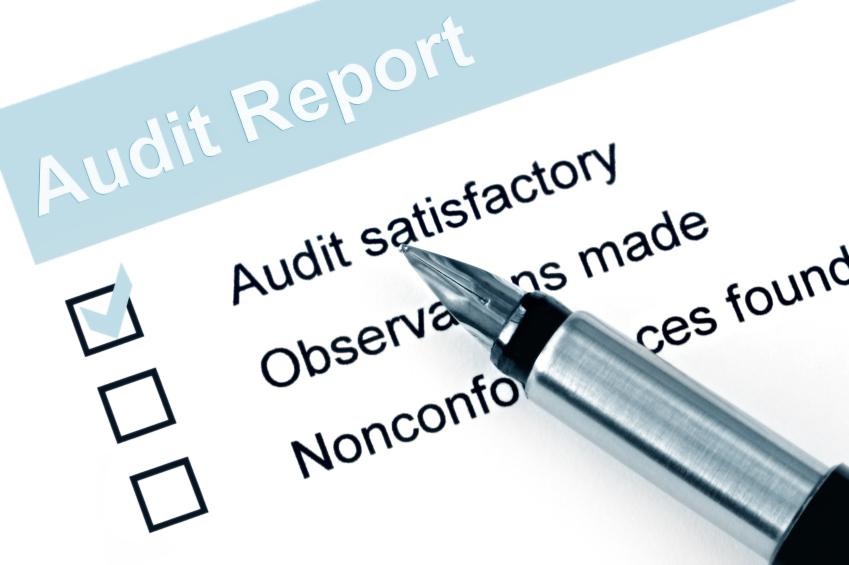Since December 15 of 2017, U.S. public corporations have been required to disclose in their annual reports how long their external auditor has been engaged by the company. Should length of tenure make a difference to investors and others concerned with corporate finance? Some new research suggests that it should, particularly when the auditor is among the Big 4, the four firms that constitute the top rank in corporate accounting.
A scholarly paper in the June issue of Accounting Horizons, a journal of the American Accounting Association, notes that opposition to term limits for external auditors has been “the subject of active lobbying by the accounting profession, especially the Big 4 audit firms…The most prevalent explanation is that clients benefit from superior audit quality rendered over longer audit firm tenure.”
The paper, by Aloke (Al) Ghosh and Subprasiri Siriviriyakul of Baruch College of the City University of New York, offers a strikingly different explanation. In their words, “Big 4 audit firms earn quasi rents [the magnitude of which] increases with tenure because Big 4 audit firms charge a sizable tenure-linked fee premium…and [also] because less audit effort is needed to provide the desired level of assurance as tenure lengthens.”
“In contrast, non-Big 4 audit firms do not earn large quasi-rents,” the professors write. “We conclude that [our] results provide a compelling explanation for why the Big 4 audit firms are so fervently opposed to firm rotation.”
Adds Prof. Ghosh: “Our findings, we believe, reflect lack of competition and absence of lowballing among the Big 4. The principal concern is not that the multi-billion-dollar corporate clients of the Big 4 can’t afford the premiums charged by their auditors; it’s that when fees are increasing over time and accounting firms envision engagements extending well into the future, audit independence could very well be threatened.”
——-
Indeed, recent corporate disclosures reveal that among the largest corporate clients engagements commonly stretch over many decades. For example, among the first 21 companies of the Dow 30 to release their reports this year, the average auditor tenure is 66 years.
According to the new study, Big 4 audit fees increase on average by 13% between the first year and the second, by about 22% between the first year and the third, then creep up to 28% above the original fee by year 12 and 32% above it by year 14. Three considerations, Prof. Ghosh contends, raise doubts about the legitimacy of these increases.
First of all, he says, this pattern of fee raises is special to the Big 4; among the hundreds of other accounting firms making up the study’s sample, audit fees on average remained about level or even fell slightly with lengthening tenure.
Second, the fee increases imposed by the Big 4 are not attributable to greater workloads that may result as client firms grow bigger or more complex, since the study controls for such factors.
And, third, far from workloads growing over time, average work requirements decline as auditor tenure increases. The study reaches this conclusion based on audit-report lag, the amount of time from the end of firms’ fiscal years to issuance of their annual financial reports, a period that, the authors reason, should “become shorter as audit firms are able to complete audit testing more efficiently and provide the desired level of assurance with less audit effort.” Controlling for an array of factors that can affect audit workload, the professors find that audit report lag diminishes with longer tenure, falling by about 6% between years one and three, about 10% by year five, about 14% by year six, and about 16% by year nine.
In sum, as the professors write, “Big 4 audit firms charge a sizable tenure-linked fee premium [even as] less audit effort is needed…Although audit costs decline with longer tenure for non-Big 4 firms, they tend to offer a tenure-linked fee discount which offsets some of the benefits of lower audit costs…Ultimately, the benefits of longer tenure, if any, are relatively small for non-Big 4 audit firms.”
The study draws on audit-firm tenure and pricing information spanning the 14-year period from 2000 (when audit-fee information was first made available by a major financial database) through 2013. In all, the study’s analysis comprises 21,855 company-years’ worth of data from continuous relationships between audit firms and corporate clients, with audits divided about equally between Big 4 and non-Big 4 firms.
In conclusion, the professors see their findings as providing “new insights into the recent debate surrounding audit firm rotation by analyzing audit firm tenure and audit firms’ economic welfare. The results…suggest a need to better monitor auditor independence and audit judgments when tenure is long because of an economic bonding between Big 4 audit firms and clients that tends to magnify over the length of the auditor-client relationship.”
The study, entitled “Quasi Rents to Audit Firms from Longer Tenure,” is in the June issue of Accounting Horizons, published quarterly by the American Accounting Association, a worldwide organization devoted to excellence in accounting education, research, and practice. Other journals published by the AAA and its specialty sections include The Accounting Review, Auditing: A Journal of Practice and Theory, Issues in Accounting Education, Behavioral Research in Accounting, Journal of Management Accounting Research, Journal of Information Systems, Journal of Financial Reporting, The Journal of the American Taxation Association, and Journal of Forensic Accounting Research.
NOTE
What about the insistently-advanced claim that lengthy auditor tenure fosters superior audit quality? Although the new study does not test that claim, a recent paper in another American Accounting Association journal, The Accounting Review, calls it into question. Employing a new research approach, the study finds shorter auditor tenure to be associated with faster discovery of financial misreporting and expresses concern “that long auditor tenure may lead to impairment of auditor independence.” For further information see http://aaahq.org/Outreach/Newsroom/Press-Releases/2-26-18-US-and-EU-Mandates.
Thanks for reading CPA Practice Advisor!
Subscribe Already registered? Log In
Need more information? Read the FAQs




